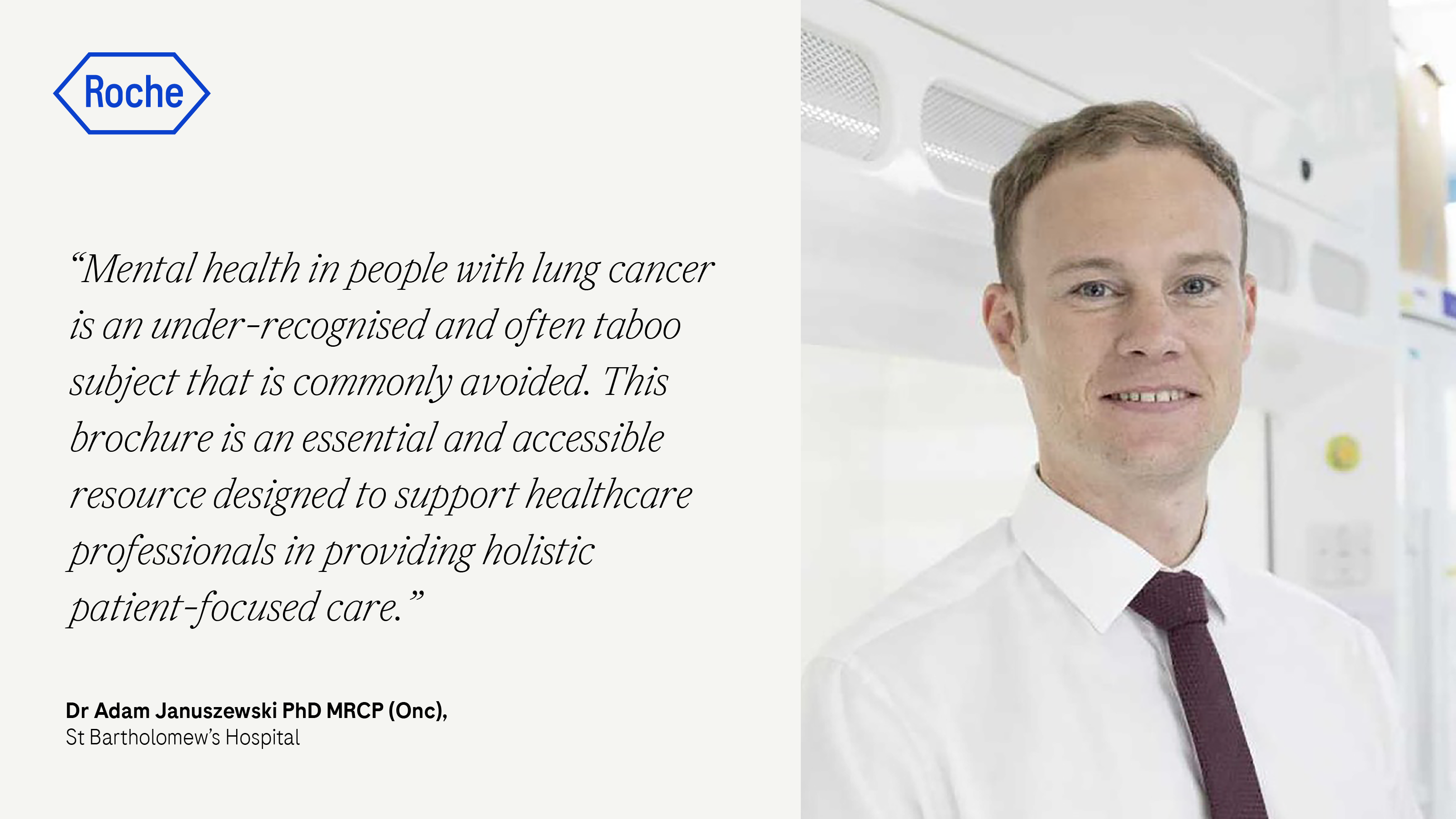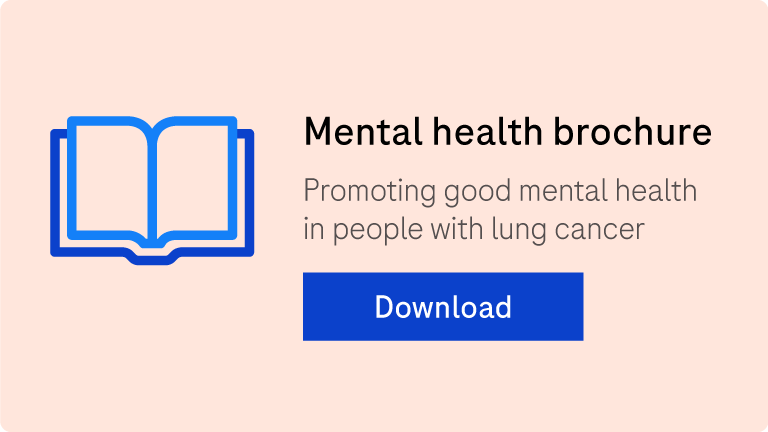
Let’s break the silence around mental health in lung cancer
Understanding the impact
The emotional distress is as real as the physical effects
Countless patients carry the weight of lung cancer in silence
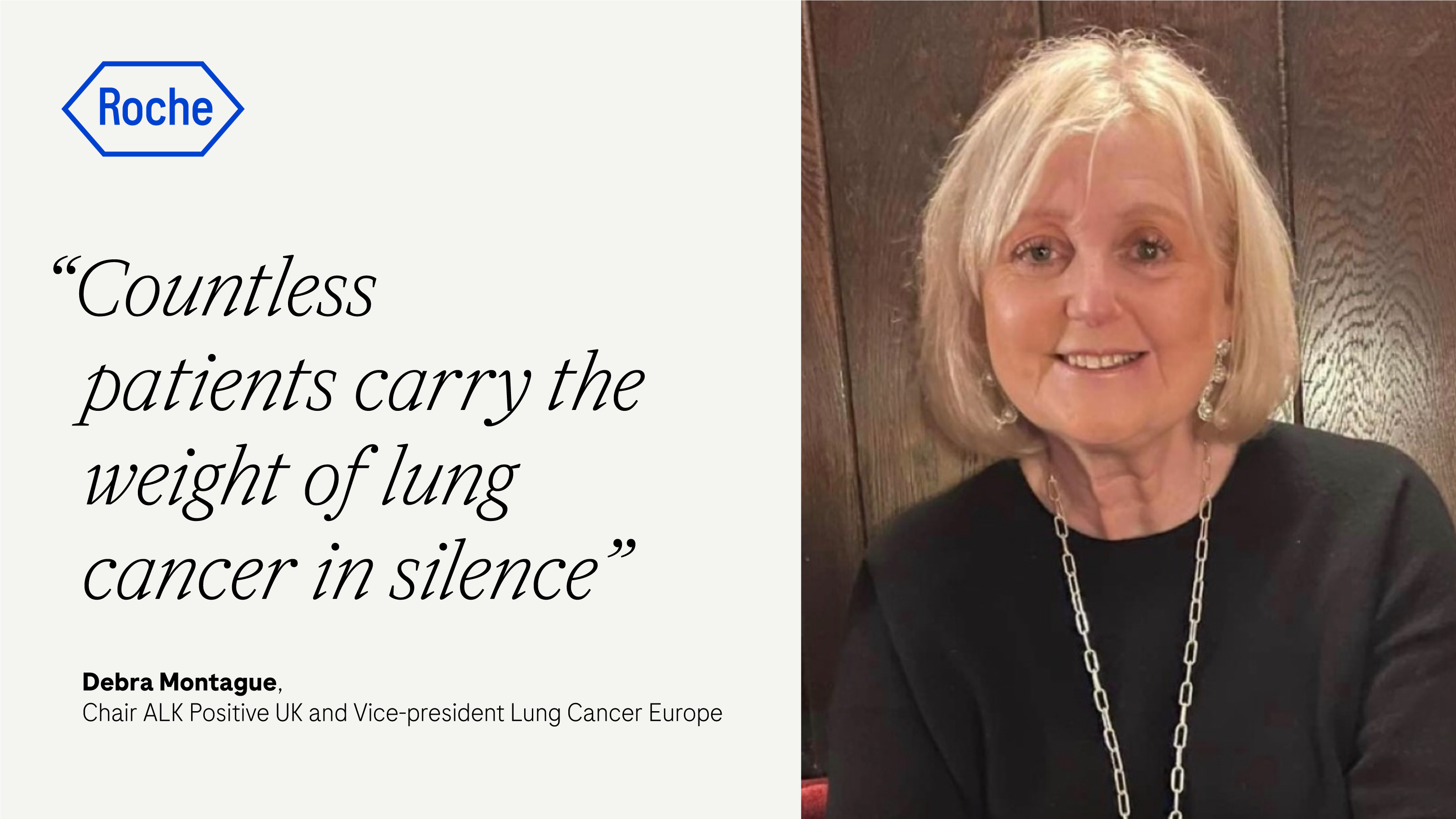
“A diagnosis of lung cancer can have a devastating impact on mental health." says Debra Montague, Chair ALK Positive UK and Vice-president Lung Cancer Europe. "It affects not only patients, but also those closest to them. Overwhelming emotions experienced at diagnosis can lead to the development of mental health challenges including anxiety and depression, that are too rarely spoken about."
"Nearly 60% of patients suffer from mental health distress – a burden that goes unseen and misunderstood by those around them. Countless patients carry the weight of lung cancer in silence, which can leave them feeling isolated and reluctant to seek help because of the stigma surrounding the disease.”
Why mental health matters
Improved mental health has been linked to patients living longer
For people with cancer who have a mental health disorder, getting mental health treatment may help them live longer, this is suggested by a study of 50,000 US veterans with lung cancer and mental illness.3,4 Better mental health as assessed by standard clinical scales, is linked to improved lung cancer outcomes. Treatment for severe depression in people with lung cancer has also been shown to reduce symptoms such as pain and tiredness.7
However, just 10% of people with lung cancer are referred to seek psychological support.8 Providing people with mental health support from the point of diagnosis and beyond, will give them the best chance of living well with cancer.
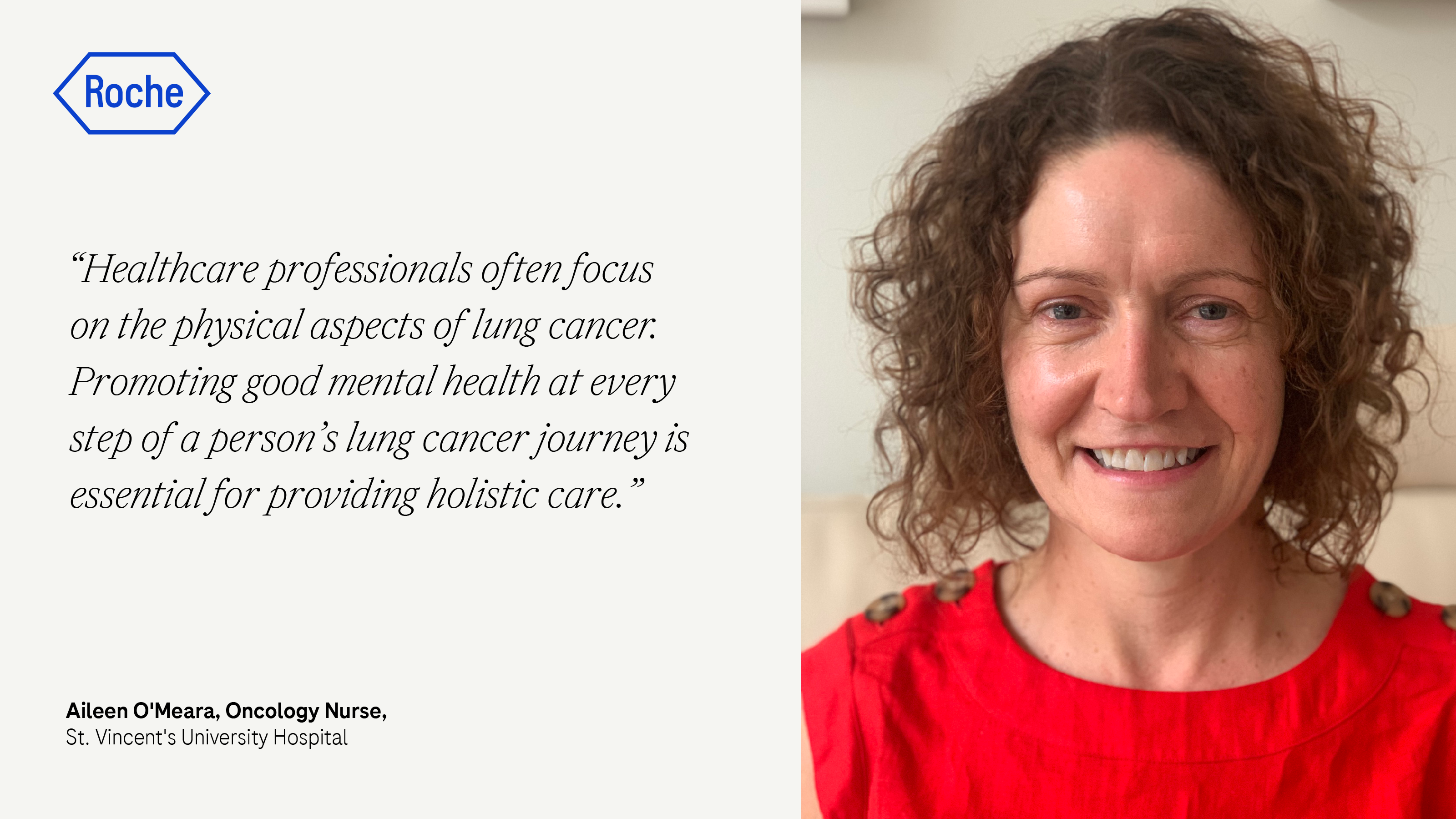
Working together to support patients
The healthcare team’s role is fundamental in helping to empower people with lung cancer to speak up about their mental health challenges. Proactively talking to people about their disease and their response to diagnosis is the first step. By doing so, you help break down stigma and open access to the wide range of support provided by your multi-disciplinary team (MDT).
What is the best way to talk to patients about their mental health?
Good communication matters. The HCP support brochure will help you ask the right questions in the right way.
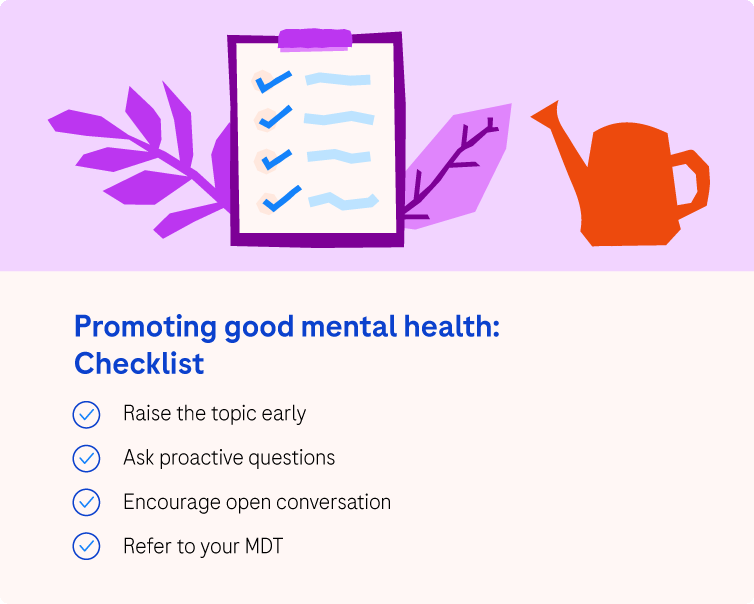
Roche is working alongside partners at the Global Lung Cancer Patient Council to drive important conversations about mental health and provide resources that offer support and guidance to patients and HCPs.
Together, we can help ease the burden of lung cancer and better support people impacted by the disease.
References
1. Ellis J. The impact of lung cancer on patients and carers.Chronic respiratory disease.Sage Journals 2012:9(1), 39–47.
2. Chambers, S K et al.Psychological distress and quality of life in lung cancer: the role of health-related stigma, illness appraisals and social constraints.Psycho-oncology. 2015;24(11),1569–1577.
3. Berchuck, J. E et al. Association of mental health treatment with outcomes for US veterans diagnosed with non-small cell lung cancer.JAMA oncology.2020; 6(7), 1055–1062.
4. National Cancer Institute. Mental health treatment linked to improved cancer survival. 2020. Retrieved March 2024, from https://www.cancer.gov/news-events/cancer-currents-blog/2020/lung-cancer-treating-mental-health-longer-survival
5. Lehto R H. Psychosocial challenges for patients with advanced lung cancer: interventions to improve well-being.Lung Cancer (Auckland, N.Z.).2017; 8, 79-90.
6. Rowntree, R. A and Hosseinzadeh H. Lung cancer and self-management interventions: A systematic review of randomised controlled trials. International journal of environmental research and public health. 2020;19(1), 536
7. Mind. Mind response to research into depression in people with cancer.2014. Retrieved March 2024, from https://www.mind.org.uk/news-campaigns/news/mind-response-to-research-into-depression-in-people-with-cancer/
8. Anuk D et al The characteristics and risk factors for common psychiatric disorders in patients with cancer seeking help for mental health. BMC Cancer.2019;19, 269
